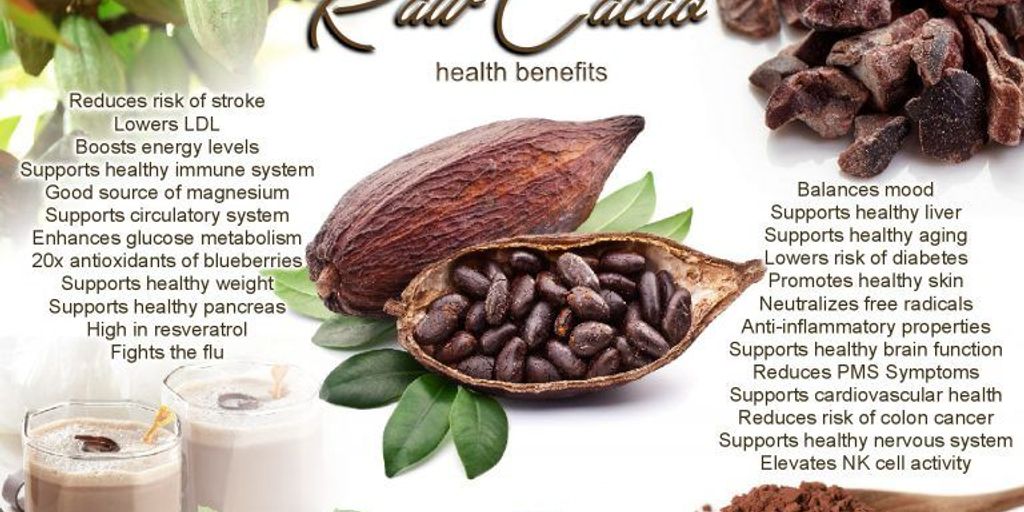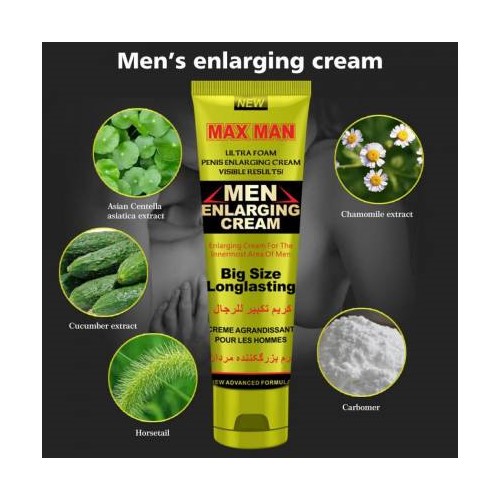Low sperm count is a common issue that can affect male fertility. In this article, we explore the Unani medicine solutions for addressing low sperm count and improving fertility. By understanding the causes, effects, and diagnosis of low sperm count, along with the Unani medicine approach and traditional practices, individuals can take proactive steps towards enhancing their reproductive health.
Key Takeaways
- Unani medicine offers herbal remedies, dietary recommendations, and lifestyle changes to address low sperm count.
- Traditional practices in Unani medicine have a historical perspective and cultural beliefs that contribute to its effectiveness in the modern context.
- Consulting a qualified Unani practitioner is essential for developing a personalized treatment plan for low sperm count.
- Understanding the causes and effects of low sperm count is crucial for effective diagnosis and treatment.
- Incorporating Unani medicine solutions can help individuals revive fertility and improve their reproductive health.
Understanding Low Sperm Count
Causes of Low Sperm Count
A low sperm count, or oligospermia, is a significant factor contributing to male infertility. This condition can stem from a variety of biological and environmental causes. Biological factors include genetic issues, hormonal imbalances, and physical blockages in the reproductive organs. Environmental influences encompass lifestyle choices such as smoking, excessive alcohol consumption, and exposure to toxins.
- Genetic abnormalities
- Hormonal disturbances
- Physical obstructions
- Lifestyle factors
- Environmental toxins
A comprehensive understanding of the underlying causes is crucial for effective treatment and management of low sperm count.
It is essential to recognize that each case is unique, and a thorough medical evaluation is necessary to identify the specific factors affecting an individual’s sperm production.
Effects of Low Sperm Count
The repercussions of a low sperm count extend beyond fertility issues. Men may experience a range of emotional and psychological effects, such as stress, anxiety, and a decrease in self-esteem. These feelings can put a strain on personal relationships and lead to sexual dysfunction.
Infertility can also impact social interactions and how individuals perceive themselves within their cultural context. In many societies, the ability to conceive is closely tied to notions of masculinity and family legacy, making the effects of low sperm count particularly distressing.
- Emotional distress
- Decreased libido
- Erectile dysfunction
- Marital or relationship problems
The journey to parenthood can become significantly more challenging for couples facing low sperm count, often requiring medical intervention or alternative solutions.
Diagnosis of Low Sperm Count
The diagnosis of low sperm count, or oligospermia, involves a series of tests and evaluations. A semen analysis is the cornerstone of this process, providing detailed information about the quantity and quality of sperm. A man is typically diagnosed with oligospermia if the sperm concentration falls below 15 million sperm per milliliter of semen.
To confirm the diagnosis, multiple samples may be collected over a period of time, as sperm counts can vary from one sample to another. The following table summarizes the key parameters assessed during semen analysis:
| Parameter | Normal Range |
|---|---|
| Volume | 1.5 mL or more |
| Concentration | 15 million/mL or more |
| Motility | 40% or more |
| Morphology | 4% or more normal forms |
Early diagnosis and intervention are crucial for improving fertility prospects. A thorough evaluation can help identify underlying issues that may be contributing to low sperm count, paving the way for appropriate treatment strategies.
Unani Medicine Approach
Herbal Remedies for Low Sperm Count
Unani medicine offers a variety of herbal remedies aimed at improving sperm count and overall reproductive health. One of the fundamental principles of Unani therapy is to enhance the body’s natural processes through the use of herbs.
- Tribulus Terrestris: Known for boosting testosterone levels and improving sperm motility.
- Withania Somnifera (Ashwagandha): Increases sperm count and enhances libido.
- Mucuna Pruriens: Improves semen quality and has antioxidant properties.
It is essential to approach herbal treatment with patience, as the effects may take time to manifest. Consistency and adherence to the prescribed regimen are key to achieving the desired results.
While these herbs are commonly used in Unani medicine, it is important to consult with a qualified practitioner before starting any herbal treatment. They can provide personalized advice and dosage recommendations based on individual health conditions.
Dietary Recommendations
In Unani medicine, dietary adjustments are considered pivotal for enhancing sperm production and quality. A balanced diet rich in certain nutrients is believed to improve overall reproductive health. Key dietary recommendations include the inclusion of foods high in antioxidants, which are thought to protect sperm from cellular damage.
Zinc is a mineral that plays a crucial role in sperm development and testosterone production. Foods such as oysters, pumpkin seeds, and beans are recommended for their high zinc content. Similarly, omega-3 fatty acids, found in fish like salmon and sardines, are essential for sperm membrane fluidity.
It is advised to incorporate a variety of fruits and vegetables in the diet to ensure a wide range of vitamins and minerals that support fertility.
The following table outlines some key foods and their associated nutrients beneficial for sperm health:
| Food Group | Nutrient | Examples |
|---|---|---|
| Seafood | Zinc | Oysters, Crab, Shrimp |
| Seeds & Nuts | Omega-3 Fatty Acids | Walnuts, Flaxseeds |
| Fruits | Vitamin C & Antioxidants | Oranges, Berries |
| Vegetables | Folate | Spinach, Asparagus |
| Dairy | Calcium & Vitamin D | Milk, Yogurt |
In addition to specific foods, staying hydrated by drinking ample water is essential for maintaining the health of sperm. A Unani practitioner may also suggest avoiding excessive consumption of processed foods, caffeine, and alcohol, as these can negatively impact sperm count and quality.
Lifestyle Changes
Incorporating lifestyle changes is crucial in the Unani approach to addressing low sperm count. Regular exercise and adequate sleep are foundational to improving overall health and, by extension, fertility. Stress management techniques such as meditation and yoga are also recommended to reduce the impact of stress on sperm production.
Sleep hygiene plays a significant role in sperm health. Establishing a consistent sleep schedule and ensuring a restful environment can lead to improvements in sperm count. Avoiding exposure to toxins, such as those found in certain plastics and pesticides, is another important aspect of lifestyle modification.
Embracing these lifestyle changes not only supports the treatment of low sperm count but also enhances general well-being.
Lifestyle modifications should be personalized, taking into account the individual’s unique circumstances and needs. A Unani practitioner can provide guidance on the most effective changes for each patient.
Traditional Practices
Historical Perspective
The Unani system of medicine has its roots deeply embedded in ancient Greek philosophy. It was further developed and enriched by Arab and Persian practitioners. Unani medicine has traditionally been used to treat a wide array of ailments, including fertility issues.
One of the cornerstones of Unani therapy is the balance of the four humors: blood, phlegm, yellow bile, and black bile. It is believed that an imbalance in these humors can lead to health issues, including low sperm count. Historical texts and practitioners have documented various herbal concoctions and physical therapies aimed at restoring this balance to enhance fertility.
The emphasis on a holistic approach is a defining characteristic of Unani medicine, considering not just the physical symptoms but also the emotional and spiritual well-being of the patient.
While Unani medicine shares some commonalities with Ayurvedic treatments, such as the use of herbal remedies and the importance of diet and lifestyle, it is distinct in its principles and practices. Unani practitioners have historically recorded successes in treating conditions that parallel those mentioned in Ayurveda, including male infertility and sexual health.
Cultural Beliefs
In the realm of Unani medicine, cultural beliefs play a significant role in shaping the perception and acceptance of treatments for conditions like low sperm count. Traditionally, fertility issues were often not discussed openly, but with the growing awareness and acceptance of alternative medicine, these topics are becoming less taboo.
Unani medicine, with its holistic approach, emphasizes the balance of the body’s humors. This philosophy is deeply ingrained in certain cultures, where the balance of mind, body, and spirit is considered essential for overall health. The following list outlines common cultural beliefs associated with Unani medicine:
- The body’s natural state is one of balance, and disease is a result of imbalance.
- Natural remedies, including herbs and foods, are preferred over synthetic medications.
- Wellness is a combination of physical, emotional, and spiritual health.
The integration of Unani practices into daily life is seen not just as a treatment for specific ailments, but as a way to maintain health and prevent disease.
These beliefs underscore the importance of a holistic approach to health, which is a cornerstone of Unani medicine. They also highlight the need for a supportive community and open dialogue about health issues, including those related to fertility.
Effectiveness in Modern Context
The effectiveness of Unani medicine in treating low sperm count in the modern context is a subject of ongoing debate. While some studies suggest potential benefits, the lack of large-scale, peer-reviewed research makes it difficult to draw definitive conclusions. However, many individuals report improvements in their condition following Unani treatments.
Unani medicine is often considered complementary to conventional treatments, and it may be particularly appealing to those seeking a more holistic approach. It is important to note that the effectiveness can vary from person to person, and what works for one individual may not work for another.
- Historical anecdotes and individual testimonials
- Integration with modern healthcare practices
- Need for more rigorous scientific studies
The integration of Unani practices with contemporary medical advice could pave the way for a more comprehensive treatment strategy, potentially benefiting patients with low sperm count.
Consulting a Unani Practitioner
Finding a Qualified Practitioner
When seeking Unani treatment, it’s crucial to consult with a qualified Unani practitioner. The expertise of the practitioner plays a significant role in the effectiveness of the treatment plan. To ensure you are in good hands, consider the following steps:
- Research local practitioners and check their credentials.
- Look for reviews or testimonials from previous patients.
- Verify their experience in treating low sperm count specifically.
It is essential to choose a practitioner who not only has a solid understanding of Unani medicine but also one who is empathetic and communicative.
Once you have a list of potential practitioners, you can narrow down your choices by considering factors such as location, availability, and treatment costs. Remember, the best Unani doctors are not just knowledgeable; they are also great listeners and dedicated to their patients’ well-being.
Initial Consultation Process
After finding a qualified Unani practitioner, the initial consultation process is a critical step in developing a personalized treatment plan. During this first meeting, the practitioner will conduct a thorough assessment of the patient’s health history and current symptoms. Patients are encouraged to discuss any previous treatments and their outcomes, as this information is invaluable for tailoring the Unani approach.
Communication is key during the consultation, as it ensures that the practitioner understands the patient’s lifestyle, dietary habits, and any stressors that may contribute to their condition. It’s also an opportunity for patients to ask questions and express their concerns.
The consultation will likely cover a range of topics, from medical history to daily routines, to ensure a holistic understanding of the patient’s health.
Following the initial discussion, the practitioner may suggest diagnostic tests or procedures to better understand the underlying causes of low sperm count. This information will be used to develop a comprehensive treatment plan that may include herbal remedies, dietary changes, and lifestyle adjustments.
Treatment Plan Development
Once the initial consultation is complete, the Unani practitioner will develop a personalized treatment plan tailored to the individual’s specific needs. This plan will integrate various aspects of Unani medicine, including herbal prescriptions, dietary guidelines, and lifestyle modifications. Regular follow-ups will be scheduled to monitor progress and make adjustments as necessary.
Herbs for Male Fertility have been a cornerstone in Unani medicine for enhancing reproductive health. The practitioner may include a regimen of these herbs, known for their efficacy in improving sperm count and overall fertility.
It is crucial for patients to adhere to the treatment plan and maintain open communication with their practitioner to ensure the best possible outcomes.
The success of the treatment plan relies not only on the prescribed remedies but also on the patient’s commitment to the process. Here is a simple list of steps that patients are typically advised to follow:
- Maintain a consistent schedule for taking herbal supplements.
- Follow dietary recommendations closely.
- Incorporate advised lifestyle changes gradually.
- Attend all scheduled follow-up appointments.
Conclusion
In conclusion, Unani medicine offers promising solutions for individuals struggling with low sperm count. Through a combination of natural remedies, lifestyle changes, and holistic approaches, Unani medicine aims to revive fertility and improve reproductive health. It is important for individuals facing fertility issues to consult with qualified practitioners and explore alternative treatment options like Unani medicine. By addressing the root causes of low sperm count and promoting overall well-being, Unani medicine provides a holistic approach to enhancing fertility and achieving reproductive success.
Frequently Asked Questions
What are the common causes of low sperm count?
Common causes of low sperm count include hormonal imbalances, genetic factors, lifestyle choices, and environmental factors.
How does low sperm count affect fertility?
Low sperm count can reduce the chances of conception and may lead to infertility in some cases.
How is low sperm count diagnosed?
Low sperm count is diagnosed through semen analysis, physical examination, and medical history review.
What herbal remedies are recommended for low sperm count in Unani medicine?
Unani medicine recommends herbal remedies like Safed Musli, Ashwagandha, and Shilajit to improve sperm count.
What dietary recommendations can help improve sperm count?
Eating a balanced diet rich in antioxidants, vitamins, and minerals can help improve sperm count.
What lifestyle changes can aid in increasing sperm count?
Lifestyle changes such as quitting smoking, reducing alcohol intake, and managing stress can help increase sperm count.











